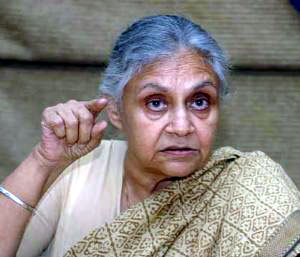 New Delhi, Jun 19: Despite the Centre’s “nudge” to quit, some of the governors appointed by the UPA regime have put up a stiff resistance, indicating that they are ready for a confrontation with the Narendra Modi-led establishment.
New Delhi, Jun 19: Despite the Centre’s “nudge” to quit, some of the governors appointed by the UPA regime have put up a stiff resistance, indicating that they are ready for a confrontation with the Narendra Modi-led establishment.
Maharashtra Governor K Sankaranarayanan said he was not considering stepping down from office while confirming that he received calls from the home secretary seeking his resignation. Speaking with reporters of Malayalam TV?channels in Mumbai, he said the move to “trivialise” constitutionally-appointed governors nominated by the previous government was inappropriate.
Sankaranarayanan is the first among the governors in the line of fire to confirm that he has received intimation from the government seeking resignation.
Nagaland Governor Ashwani Kumar, a former director of the CBI, also criticised the Centre’s move, wondering if the NDA government wants governors of a “particular colour” in states. “And if that is not the motivation, if the motivation is to invent cases against the incumbent governors, then, clearly, it is not a sign of big-heartedness and it smacks of political vendetta. I hope that is not the case,” he said.
West Bengal Governor M K Narayanan, whose term ends in January 2015, said he has not resigned yet. Raj Bhavan officials remained tight-lipped but sources said the governor’s diary of appointments has ben cleared for July.
Narayanan is expected to attend an event on the occasion of World Music Day on June 21.
Rajasthan Governor Margaret Alva’s office said that she met the prime minister in Delhi on Tuesday but was not asked to quit. Alva is due to complete her term on August 5.
Sources close to Kerala Governor Sheila Dikshit maintained that there was no “formal” intimation from the Home Secretary.
There was also no word from Gujarat Governor Kamla Beniwal whose term ends in November.
Karnataka Governor H R Bhardwaj, whose tenure ends on June 29, met Home Minister Rajnath Singh in the latter's North Block office on Wednesday.
Ruling out his resignation, Bhardwaj said Governors cannot resign unless their replacement is in place.
“There is a provision in the constitution that the Governor shall continue unless the new Governor is appointed. So, that has been the provision, how can you act irresponsibly?” he told reporters.
Bhardwaj, who has sought an appointment with Prime Minister Narendra Modi on Thursday, said “I had no talk with the Home Secretary throughout five years when I was the Governor. No Home Secretary ever talked to me. Rajnath Singh is my oldest friend and a dignified leader. So, I had to wish him well after taking the high office of the Home Minister.”





Comments
Add new comment